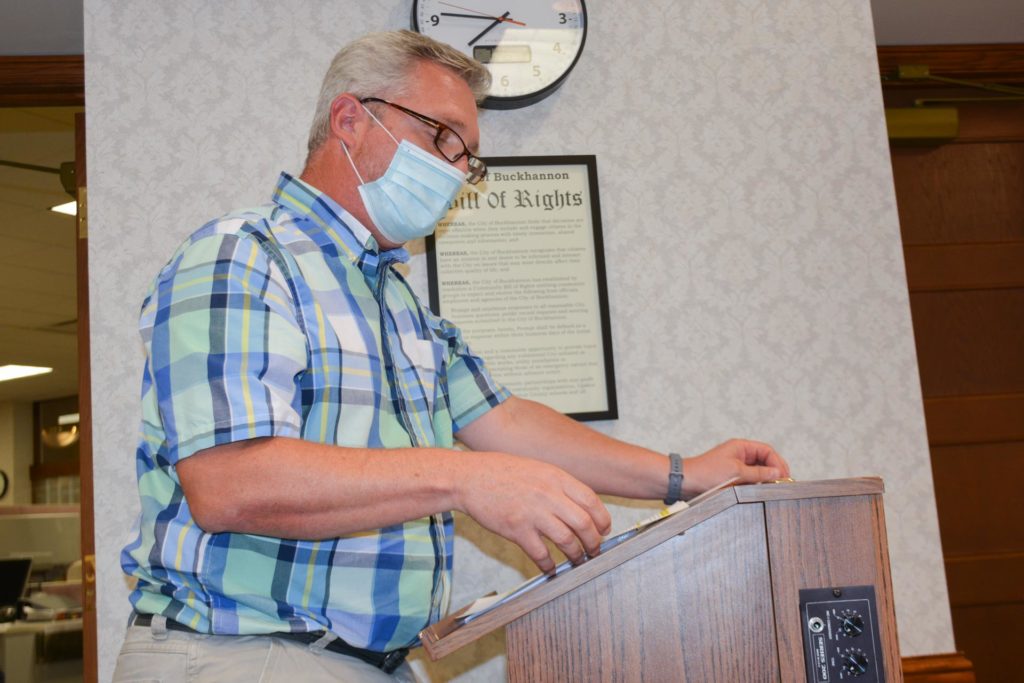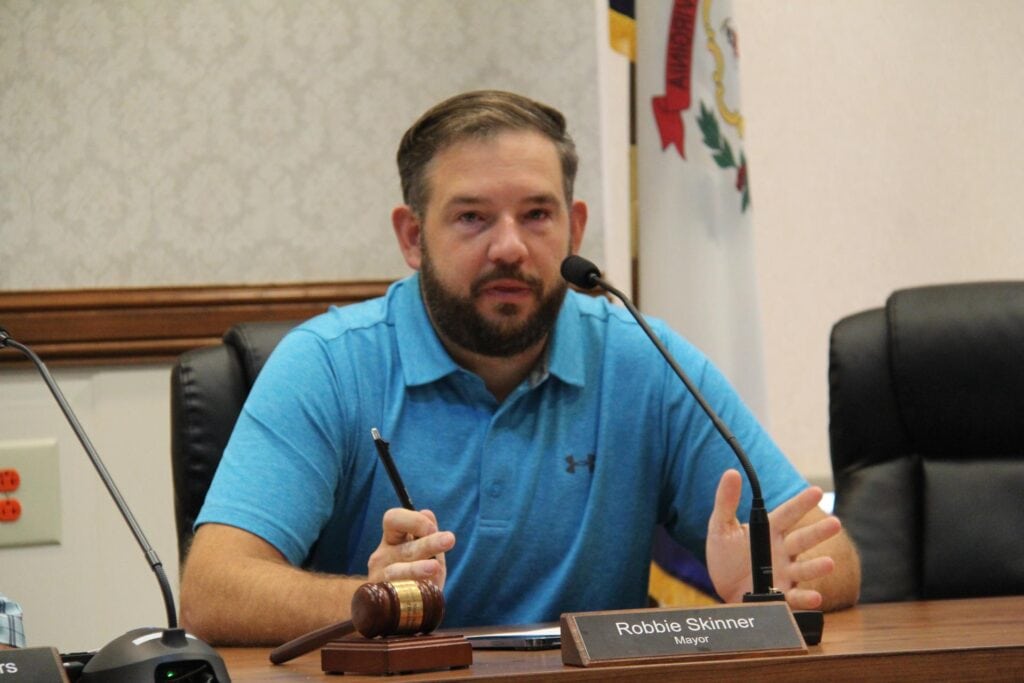BUCKHANNON – Slowly but surely, the Elizabeth J. ‘Binky’ Poundstone Riverwalk Trail is inching southward along Route 20.
Following Buckhannon City Council’s approval of the construction of Phase 4 of the trail at its Thursday, Aug. 20 meeting, another 1,900 feet will extend the trail from its current end point at the Poe Bridge to Monongalia Street.
Council approved a resolution officially supporting the construction of the newest 1,900 feet of the popular biking and walking path at the request of city engineer Jay Hollen.
Hollen said Phase 4 construction of the Riverwalk as Federal Highway Administration Transportation Alternatives Project would be funded by approximately $192,000 in federal funding with a $48,000 largely in-kind contribution from the City of Buckhannon.
Hollen said he’s preparing to walk Phase 4 with representatives from the West Virginia DOT’s Division of Highways crew in two weeks.
“The reason I brought this today is that the grant is complete short of this and some support letters,” Hollen told council. “It must be submitted by Sept. 8.”
The new footage will cost $240,785.89 – $192,628.71 of which the Federal Highways Administration will foot the bill for and $48,157.19 the city will fund via an 80/20 split.
“If anybody has any questions about where it’s going to go, it’s going to go from the Poe Bridge where the current walking trail ends to parallel the railroad tracks until we get to Preston Street,” Hollen explained. “Then, we’ll take a right-hand turn, and that’ll bring us to Wood Street at the Water Treatment plant. Then it’ll take a left-hand turn, and head toward the old armory and go down Wood Street until Monongalia.”
“It’s going to be about a total of 1,900 feet,” Hollen added, noting the pathway will be an 8-foot-wide mix of concrete and asphalt.”
Hollen said he doesn’t anticipate getting a formal notice to proceed from the Division of Highways until after July 1, 2021, the start of the next fiscal year.
“Even though we don’t have that earmarked for this year, I wouldn’t anticipate receiving notice to proceed and allocations of funding until July 1 of 2021,” Hollen said, “so, if we would get that notice to proceed, we would have to find that somewhere in the budget.”
City finance and administrative director Amberle Jenkins said most of the city’s contribution will be in-kind, or labor.
“So, that’ll take quite a bit of that $48,000,” she said.
Resolution 2020-09 passed unanimously following a roll call vote.
Hollen additionally addressed what he said were “three major tears” in the roof of city hall, saying it would be prudent for city officials to select one of two temporary fixes to last through the winter prior to completely replacing the roof – hopefully during summer 2021.
“There are three major tears in the roof above the main part of city hall, which was the original post office part,” Hollen said. “The rubber membrane is off of the wall and off of the roof decking. It’s still intact, but it’s come away from the roof …. We’re looking at a 30-year-old roof that had a warranty and a membrane life of 15 to 20 years, so we’ve gotten our time out of that.”
Hollen said standing water and bees’ nests were found inside the worst of the three tears, which measured approximately 15 to 18 inches.
“The roofing contractor looked at it in August, and if we don’t replace the whole roof now, it’s definitely going to be an item that’s going to need to be done next year,” he said. “We have to replace the roof on the original post office portion of city hall.”
Hollen and public works director Jerry Arnold said they’d agreed that a more thorough $10,000 fix as opposed to a simple $5,000 patch job would buy the city about 10 months until the roof could be replaced. The cost of total replacement will range from $110,000 to $130,000 with a 20-year warranty, which would include replacing the wood underlaying.
Additionally, because the current roof was installed in the 1980s, it would need to undergo an asbestos inspection, which could cost another $12,000 to $18,000.
Jenkins said she could pull money allocated in the city’s general fund budget that was originally intended to be used to fix city hall’s doors and foundation.
“We need to look at this building for sure next year,” Jenkins said.
When city councilman David Thomas suggested transferring some money from the city’s ‘rainy day’ fund, however, Jenkins said she wanted to see how much CARES COVID-19 funding and sales tax could be found to invest in a temporary fix first.
“I would prefer that you let us pay this bill first,” Jenkins said. “We have some money coming in from [Coronavirus Aid, Relief and Economic Security Act] and sales taxes, so let me see.”
Councilwoman Mary Albaugh made a motion that the city pay for the $10,000 temporary fix and revisit the issue of total roof replacement during budget meetings in March. Councilman CJ Rylands seconded the motion, which passed unanimously.
“I just want to get the doors fixed and the foundation,” Thomas said. “Let’s not push it too far. I hate to hold off on maintenance. That’s not a good thing to do.”
“This building does need to be made a priority,” mayor Robbie Skinner agreed. “It is our city’s house.”













